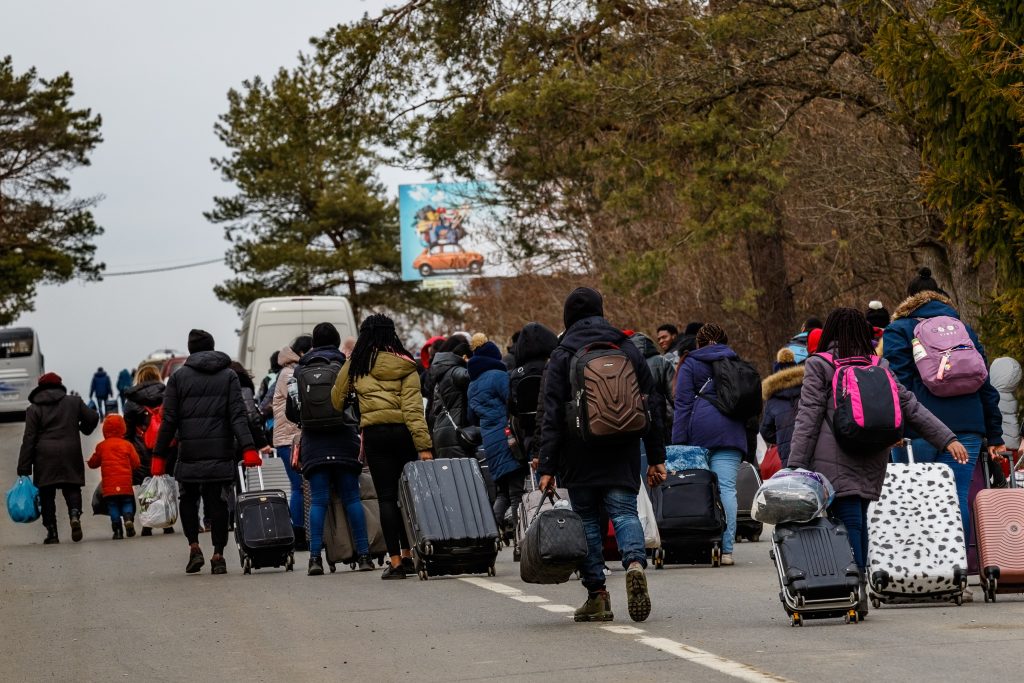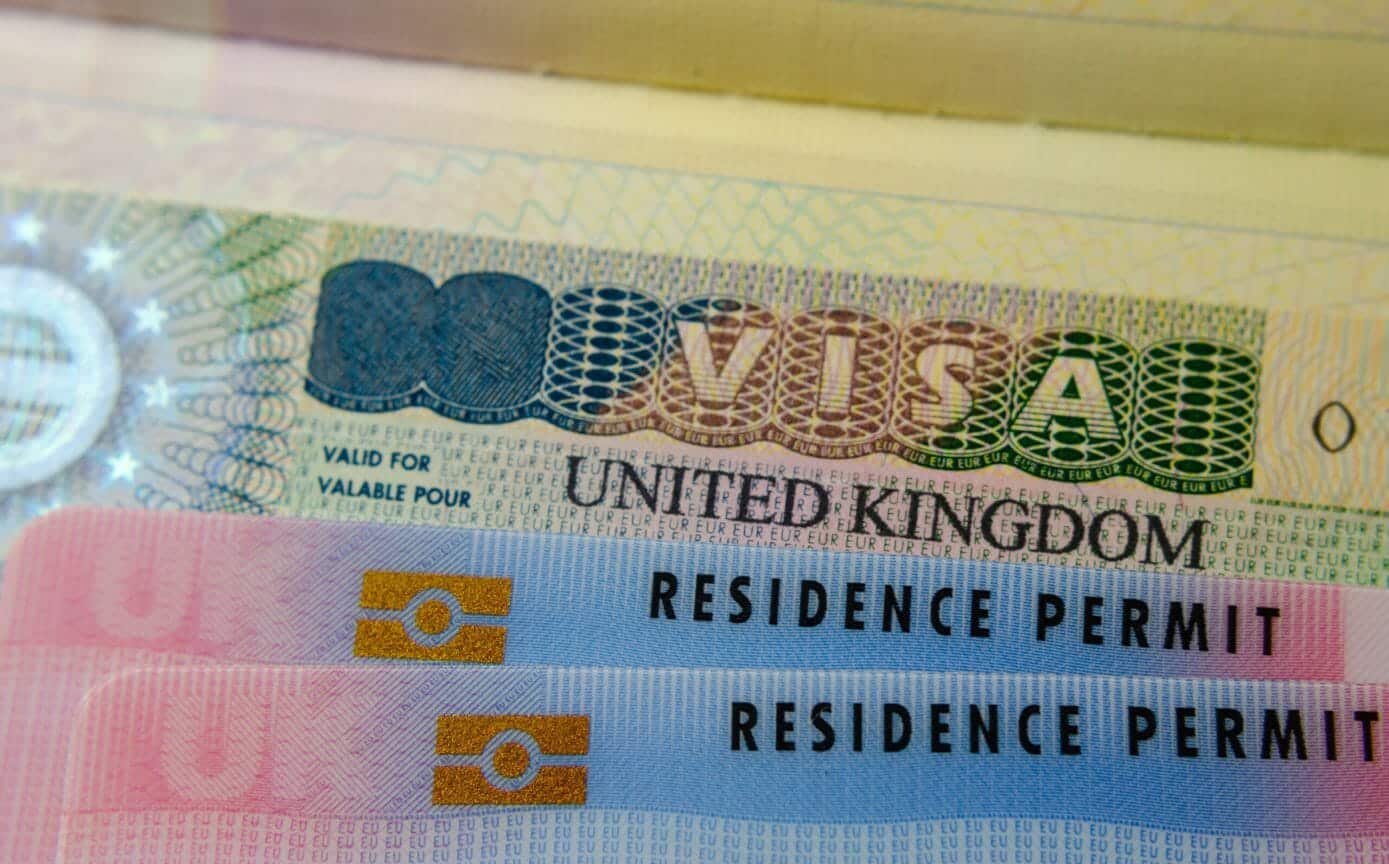With the new influx of Ukrainian asylum seekers to the UK that the Russian invasion has caused in recent months, foreigners have taken to share their own experiences as foreigners trying to apply for permission to stay in the UK, and battles with bureaucracy that has infamously left many riddled with anxiety, fatigue, and hopelessness.
The UK has been affronted with large migrations since the past 3 decades due to its promises of affordable living and openness to migrants. However, in recent years, the Conservative party has strengthened its hold on the immigration system in place to better control – and therefore, limit – the access granted to refugees and asylum seekers.
After pledging to open a special appeal to Ukrainian refugees, the Home Office’s bureaucratic measures and VISA requirements still show to be an extremely difficult process to successfully fulfil.
Home Secretary Priti Patel has recently announced a new simplification of the application process specifically for Ukrainians, however, there has been a large flow of cross-party criticism against Patel’s allegedly ‘simplified’ policies.
Vice reached out to multiple young immigrants to share their experiences with the UK’s immigration system, and these are their stories below:

Eilisha Bautista, 23 years old, is a first-generation immigrant. She moved to the UK to study when she was only 15, however she remembers the difficulty of the obligatory ‘Life in the UK test’. This test is a mandatory element of the application process for anyone seeking either indefinite leave to remain, or permanent citizenship.
Bautista says: “As a history junkie and avid reader, studying for the test was almost exciting to me. But the more I delved into guides and handbooks – I was stumped by how onerous some of these questions were.”
Bautista says that the questions ranged from asking what a Welsh cake was, to how many parliamentary constituencies exist, to which palace was cast-iron, glass-plated and housed the Great Exhibition of 1851.
Safe to say, these are questions that perhaps many UK-born citizens wouldn’t even have an answer to.
Bautista also shares, “Half of my family is white, educated, born-and-raised British. They share a great passion for general knowledge. None of them passed our role-play test on the first go.” Assuming that this is practical day-to-day information every true Briton should know, seems a bit far fetched…
It begs the question that perhaps the Life in the UK test is not the most accurate measure of the culture of the UK, and indeed, not an accurate measure of an immigrant’s intelligence and capabilities. It definitely is not an accurate measure of the extent one may be devoted to the country they plan to build their life, and family.
Jude Bonsu, instead, reveals that the most troubling element of the UK Immigration system was the International English Language Testing System. Bonsu is originally from Ghana, a former British colony, where English was enforced as the official language and imposed as the main medium for educational institutions. In fact, if you fail your English class makes you ineligible to pass to senior high school.
Bonsu says, “I find it interesting that we are still made to take the IELTS test before we are considered for admission to schools in the UK. Ghana is part of the Commonwealth and there are other countries in the Commonwealth exempt from taking the test. It’s worth pointing out that of all the commonwealth countries that are exempt from taking such tests, not one is an African country.”
Bonsu adds, “I see people using the word ‘extortion’ when talking about these tests, in the sense that requiring the numerous applicants to take them serves as a moneymaking avenue for the UK government. I am tempted to agree with that. I think this is unfair to the people of Ghana and also other British colonies who have to go through this.”
On the other hand, Iryna Zamuruieva, 29 years old, says that she wishes for the “dismantling of the hostile environment policy.”
Zamuruieva claims that she “was not surprised by the UK immigration system…because (she) was already aware of the hostile environment policy that the government is deliberately pursuing.”
Zamuruieva’s main reason for going to the UK was to follow her partner who had a British government-funded PhD. And yet, it was apparently “still difficult and very expensive” to get their visas. Dealing with the prices of the application itself, as well as the Immigration Health Surcharge fee felt like a “shock” when having to organize moving from abroad already.
Zumuruieva says, “As a Ukrainian living in the UK – I would like to live in a world where I can travel and see my loved ones without excessive cost and bureaucracy. At present, it’s free to come to the UK from Ukraine, but sadly it’s just a temporary measure as far as the rules go. I wish it was permanent, not only for Ukrainians but for everyone else fleeing war or (the impacts of) climate change. I’d like to see the end of labelling people ‘illegal’ – rendering them disposable, and of course, I’d like to see the dismantling of the hostile environment policy and a move toward a more welcoming environment for those who need a place to live.”
Tim Seong, 26 years old, opens up about his “very high stakes and tense experience” dealing with the UK Home Office.

Seong says, “I think what shocked me the most was how stressful it was. There were lots of requirements – which we were expected to meet ‘to-the-T’. For the student visa, for example, we had to do lots of tests and show tons of documents.”
Additionally, “Financially speaking we had to hold the balance to cover our first year’s whole academic fees and maintenance for 30 consecutive days – we were warned that if the balance dropped by $0.01 (for even a day) our visa application would not succeed.”
Seong recalls the day he went to the embassy to collect his passport, “There was a woman crying because her visa application failed as a result of a $50 drop in her balance.”
“As someone who has lived around the world, I still can’t recall any visa experience as stressful as the UK’s…It shouldn’t be this way.”
With the high influx of immigration that the UK expects from Ukrainian appeals, a revisit of the Home Office’s bureaucratic measures must be taken into consideration. The difficulty of sitting down, taking tests, and applying and securing money all in order to be merely considered is a struggle that many fleeing persecutions cannot harbour safely. The language barriers, the financial barriers, and the mere time it takes are all hindering obstacles standing in the way of one actually being provided safety in such dire conditions. The Home Office’s methods to grant visa applications and asylum-seeking permits are tedious, and anxiety-inducing, when, if the UK offers itself as a safe haven for vulnerable refugees in need, it really need not be anymore.
Read here about the situation at the Ukrainian border, and how African nationals are being unjustly assaulted attempting to flee.














